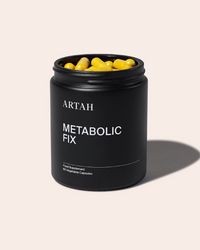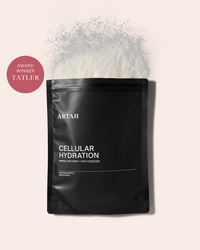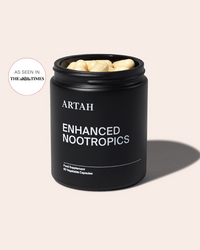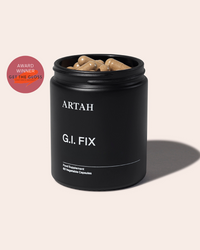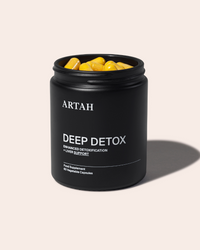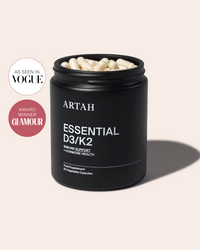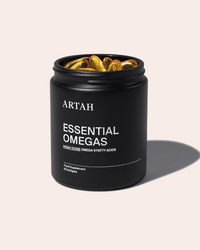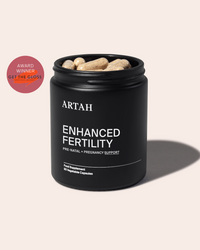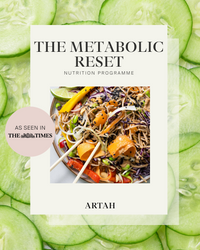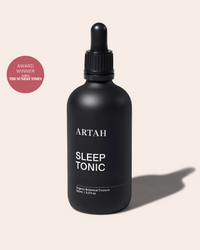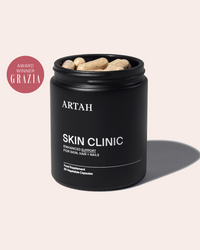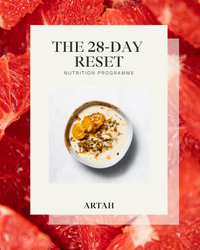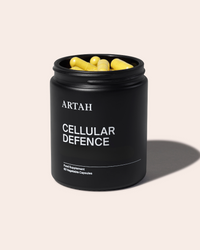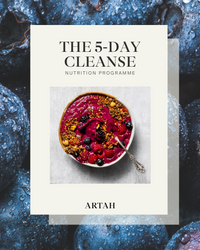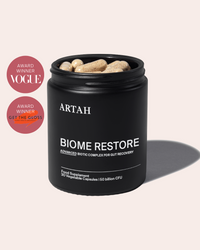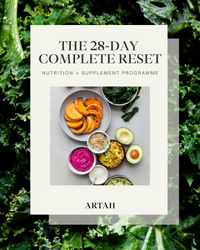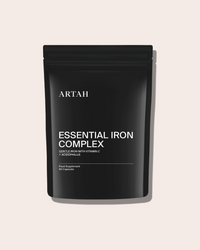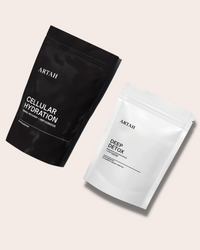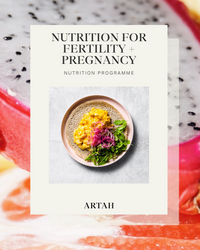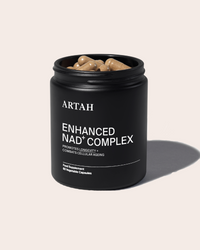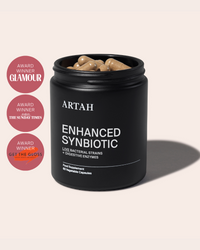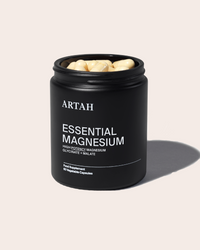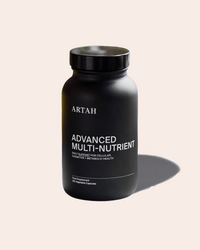Content with bold, italic, link.
- Bullet point a
- Bullet point b
- Numeric point a
- Numberic point b
Heading 1
Heading 2
Heading 3
Heading 4
Heading 5
Heading 6

Membership

Hero Ingredients
Want to know more about our fomulation?
See the research
Lorem ipsum

Lorem ipsum

Lorem ipsum
Lorem ipsum

Lorem ipsum
A
Alpha-Lipoic Acid
About the ingredient
Known as the universal antioxidant, ALA combats inflammation, promotes metabolic health, supports detoxification, reduces oxidative stress and regenerates vital antioxidants in the body. It has powerful anti-inflammatory action and studies have shown that it can help improve the number and quality of oocytes. It has also been shown to help with blood sugar management, insulin resistance in women with PCOS, improve menstrual cycles, and is associated with positive IVF outcomes
Resources
- Aida Petca, Mihaela Bot, Nicoleta Maru, Ioana Gabriela Calo, Andreea Borislavschi, Mihai Cristian Dumitrascu, Razvan-Cosmin Petca, Florica Sandru, and Mona Elena Zvanca. Benefits of α-lipoic acid in high-risk pregnancies (Review). Exp Ther Med. 2021 Nov; 22(5): 123
- C. Kim J. MoonY. JeungS. Kim, H. Chae, B. Kang. A Lipoic acid supplementation increases the expression of pgc-1alpha gene in granulosa cells and improves IVF results in aging women undergoing IVF. Fertility and Sterility. 108, (3), Sept 2017.
- Hiep Nguyen; Vikas Gupta. Alpha Lipoic Acid: Stat Sheet. https://www.ncbi.nlm.nih.gov/books/NBK564301/
- Oliveira AM, Rondo PH, Luzia LA, D'Abronzo FH, Illison VK. The effects of lipoic acid and alpha-tocopherol supplementation on the lipid profile and insulin sensitivity of patients with type 2 diabetes mellitus: a randomized, double-blind, placebo-controlled trial. Diabetes Res Clin Pract.May 2011;92(2):253-260
Antioxidants
About the ingredients
Oxidative stress is a normal part of our metabolism, and is balanced by our body's antioxidant system. Maintaining a balance between antioxidants and oxidative stress is critical for fertility; excess oxidative stress can contribute to miscarriage and certain pregnancy complications. Antioxidants like Zinc, Selenium, VItamin C, Vitamin E, N Acetyl Cysteine, Alpha Lipoic Acid, and CoEnzyme Q10 are all important nutrients to support fertility and pregnancy.
Resources
- Ruder EH, Hartman TJ, Goldman MB. Impact of oxidative stress on female fertility. Curr Opin Obstet Gynecol. 2009 Jun;21(3):219-2
- Duhig K, Chappell LC, Shennan AH. Oxidative stress in pregnancy and reproduction. Obstetric Medicine. 2016;9(3):113-116.
- Hiten D. Mistry1and Paula J. Williams. The Importance of Antioxidant Micronutrients in Pregnancy. Oxidadtive Medicine and Cellular Longevity. Volume 2011 | Article ID 841749
B
Biotin
About the ingredient
Also known as Vitamin B7, Biotin is important for reproductive health and foetal development. It's required for healthy ovulatory function, energy metabolism, and gene regulation, and is required for your baby's healthy growth and metabolism. Low levels have been associated with increased risk of preterm labour and growth restriction.
Resources
- Yuko Ichihara, Kenichi Suga, Maika Fukui, Naoto Yonetani, Miki Shono, Ryuji Nakagawa, Shoji Kagami. Serum biotin level during pregnancy is associated with fetal growth and preterm delivery. J Med Invest. 2020;67(1.2):170-173
- Biotin: biochemical, physiological and clinical aspects. Subcell Biochem. 2012;56:1-19.
- National Institutes for Health: Biotin Fact Sheet for Health Professionals. https://ods.od.nih.gov/factsheets/Biotin-HealthProfessional/
Vitamin B1
About the Ingredient
Vitamin B1, or Thiamin, is an essential B Vitamin for energy metabolism, growth, development, and cellular function. Adequate Thiamin, alongside the other B Complex Vitamins, is important in the prevention of ovulatory health and fertility. Our requirement for Thiamin increases over the course of pregnancy and lactation, making optimal levels a goal of pre-natal, pregnancy and breatfeeding support.
Resources
- National Institute of Health. Thiamin: Fact Sheet for Health Professionals. https://ods.od.nih.gov/factsheets/Thiamin-HealthProfessional/
- Gluckman, Sir Peter and others, 'Vitamin B1 (thiamine) in pregnancy and breastfeeding', Nutrition and Lifestyle for Pregnancy and Breastfeeding. Oxford, 2014; online edn, Oxford Academic, 1 Jan. 2015
- Jorge E. Chavarro, M.D. et al. Use of multivitamins, intake of B vitamins, and risk of ovulatory infertility. Journal of Reproductive Endocrinology. March 2008: Vol 89 (3), P668-676.
Vitamin B12
About the ingredient
Vitamin B12 is important for healthy blood cells, gene expression, and ovulatory health. Optimal levels of B12 can help reduce the risk of miscarriage, ovulatory failure, and improves egg quality. It's also critical for your baby's brain development and works alongside Folate to help prevent neural tube defects. We use a high dose of the active form of Vitamin B12, methylcobalamin, to help enhance your B12 status, which is especially important for plant based individuals or those who are coming off of oral contraceptives.
Resources
- Veninga KS. Effects of oral contraceptives on vitamins B6, B12, C, and folacin. J Nurse Midwifery. 1984 Nov-Dec;29(6):386-90. doi: 10.1016/0091-2182(84)90169-1. PMID: 6568271.
- Audrey J Gaskins, Yu-Han Chiu, Paige L Williams, Jennifer B Ford, Thomas L Toth, Russ Hauser, Jorge E Chavarro, and for the EARTH Study Team. Association between serum folate and vitamin B-12 and outcomes of assisted reproductive technologies. Am J Clin Nutr. 2015 Oct; 102(4): 943–950.
- M. Bennett. Vitamin B12 deficiency, infertility and recurrent fetal loss. J Reprod Med. 2001 Mar;46(3):209-12.
- National Institute of Health: VItamin B12 Fact Sheet for Professionals. https://ods.od.nih.gov/factsheets/VitaminB12-HealthProfessional/
Vitamin B2
About the ingredient
As one of the B Complex Vitamins, Riboflavin is important for energy production and is also involved in methylation, a process that is intrinsically linked to fertility. Adequate Riboflavin has a positive associated with birth weight and inversely related to preeclampsia risk. Women who are exclusively plant-based have a greater risk of deficiency.
Resources
- Alisa D. Kjaergaard, Yanxin Wu, Wai-Kit Ming, Zillian Wang, Mathias N. Kjaergaard & Christina Ellervik . Homocysteine and female fertility, pregnancy loss and offspring birthweight: a two-sample Mendelian randomization study. European Journal of Clinical Nutrition volume 76, pages 40–47 (2022)
- Wacker J, Fruhauf J, Schulz M, Chiwora FM, Volz J, Becker K. Riboflavin deficiency and preeclampsia. Obstet Gynecol 2000;96:38-44.
Vitamin B3
About the ingredient
Also known as Niacin, Vitamin B3 is essential for energy metabolism. It is converted into NAD+, which is required for over 400 reactions in the body. NAD+ contributes to egg quality, and optimal levels of Vitamin B3 can reduce the risk of ovulatory infertility, miscarriage, and certain congenital defects.
Resources
1. National Institutes of Health: Pantothenic Acid Fact Sheet for Health Professionals. https://ods.od.nih.gov/factsheets/PantothenicAcid-HealthProfessional/
Vitamin B6
About the Ingredient
An essential for healthy estrogen and progesterone levels, Vitamin B6 is often depleted with use of oral contraceptives and low levels are associated with anxiety. During pregnancy, Vitamin B6 is involved in the development of your baby's nervous system, and is also a first line treatments against nausea and vomiting.
Resources
- Wibowo N, Purwosunu Y, Sekizawa A, Farina A, Tambunan V, Bardosono S. Vitamin B6 supplementation in pregnant women with nausea and vomiting. International Journal of Gynecology & Obstetrics. 2011;116(3):206-210.
- Sahakian V, Rouse D, Sipes S, Rose N, Niebyl J. Vitamin B6 is effective therapy for nausea and vomiting of pregnancy: a randomized, double-blind placebo-controlled study. Obstetrics and Gynecology. 1991;78(1):33-36.
- Veninga KS. Effects of oral contraceptives on vitamins B6, B12, C, and folacin. J Nurse Midwifery. 1984 Nov-Dec;29(6):386-90.
C
Carotenoids
About the Ingredients
Carotenoids are phytonutrients that make up the coloured pigments in bright coloured fruit and vegetables. They play an important role in foetal growth and development. Our formula contains Beta-carotine, as well as lutein, zeaxanthin which are particularly important for your baby's macular (eye) and brain development. Higher intake of Luetin in pregnancy has been associated with an increase in verbal intelligence and behaviour regulation in children.
Resources
- Hiya A Mahmassani, Karen M Switkowski, Tammy M Scott, Elizabeth J Johnson, Sheryl L Rifas-Shiman, Emily Oken, Paul F Jacques. Maternal Intake of Lutein and Zeaxanthin during Pregnancy Is Positively Associated with Offspring Verbal Intelligence and Behavior Regulation in Mid-Childhood in the Project Viva Cohort. The Journal of Nutrition, Volume 151, Issue 3, March 2021, Pages 615–627.
- Manuela Strobel 1, Jana Tinz, Hans-Konrad Biesalski. The importance of beta-carotene as a source of vitamin A with special regard to pregnant and breastfeeding women. Eur J Nutr. 2007 Jul;46 Suppl 1:I1-20.
Choline
About the Ingredient
Choline is important to your baby’s cognitive development, spinal cord, and acts as a helper nutrient to essential fats like DHA by facilitating its transport across the placental membrane. Getting optimal levels, especially in the latter part of pregnancy, has been linked to better cognitive function in your baby’s childhood. It also works closely with Folate, Vitamin B12, and Vitamin B6 in a process called methylation, which is important for gene expression and fertility. It’s estimated that 90% of pregnant women consume less Choline than the recommended intake.
Resources
- Xiaoshu Zhan, Lauren Fletcher, Serena Dingle, Enzo Baracuhy, Bingyun Wang, Lee-Anne Huber, Julang Li. Choline supplementation influences ovarian follicular development. Front Biosci (Landmark Ed). 2021 Dec 30;26(12):1525-1536
- Bahnfleth CL, Strupp BJ, Caudill MA, Canfield RL. Prenatal choline supplementation improves child sustained attention: A 7-year follow-up of a randomized controlled feeding trial. FASEB J. 2022 Jan;36(1):e22054
- Caudill MA, Strupp BJ, Muscalu L, Nevins JEH, Canfield RL. Maternal choline supplementation during the third trimester of pregnancy improves infant information processing speed: a randomized, double-blind, controlled feeding study. FASEB J. 2018 Apr;32(4):2172-2180.
- National Institutes of Health: Choline Fact Sheet for Health Professionals. https://ods.od.nih.gov/factsheets/Choline-HealthProfessional/
Chromium
About the Ingredient
Chromium is a trace mineral involved in glucose tolerance and healthy insulin function. It's been shown to be supportive in glycemic control, improve plasma antioxidant capacity, and metabolic status of women with insulin resistance. Blood sugar management is especially important during pregnancy as we naturally become more resistant to insulin and have a risk of developing gestational diabetes.
Resources
- Anderson RA, Cheng N, Bryden NA, Polansky MM, Cheng N, Chi J, et al. Elevated intakes of supplemental chromium improve glucose and insulin variables in individuals with type 2 diabetes. Diabetes 1997;46:1786-91.
- Mehri Jamilian, Shahrzad Zadeh Modarres, et al. The Influences of Chromium Supplementation on Glycemic Control, Markers of Cardio-Metabolic Risk, and Oxidative Stress in Infertile Polycystic ovary Syndrome Women Candidate for In vitro Fertilization: a Randomized, Double-Blind, Placebo-Controlled Trial. Biol Trace Elem Res. 2018 Sep;185(1):48-55
- S Ashoush, A Abou-Gamrah, H Bayoumy, N Othman. Chromium picolinate reduces insulin resistance in polycystic ovary syndrome: randomized controlled trial. J Obstet Gynaecol Res, 42 (3) (2016)
- Mount Sinai Health Library: Chromium. https://www.mountsinai.org/health-library/supplement/chromium
CoEnzyme Q10
About the Ingredient
CoEnzyme Q10: CoQ10 is a vitamin like antioxidant found in every cell. It’s involved in energy production, cell membrane stabilisation, and gene expression. Studies have shown that CoQ10 can enhance egg quality, reduce oxidative stress, and protect against age-related decline in ovarian. Additionally, CoQ10 has been shown to improve clinical pregnancy rates in women undergoing fertility treatment.
Resources
- Lu J, Wang Z, Cao J, Chen Y, Dong Y. A novel and compact review on the role of oxidative stress in female reproduction. Reprod Biol Endocrinol. 2018;16(1):80.
- Assaf Ben-Meir, Eliezer Burstein, Aluet Borrego-Alvarez, Jasmine Chong, Ellen Wong, Tetyana Yavorska, Taline Naranian, Maggie Chi, Ying Wang, Yaakov Bentov, Jennifer Alexis, James Meriano, Hoon-Ki Sung, David L Gasser, Kelle H Moley, Siegfried Hekimi, Robert F Casper, and Andrea JurisicovaCoenzyme Q10 restores oocyte mitochondrial function and fertility during reproductive aging. Aging Cell. 2015 Oct; 14(5): 887–895.
- Bhagavan HN, Chopra RK. Coenzyme Q10: absorption, tissue uptake, metabolism and pharmacokinetics. Free Radic Res. 2006 May;40(5):445–53.
- Yangying Xu,1,2,3 Victoria Nisenblat,2,3 Cuiling Lu,2,3 Rong Li,2,3 Jie Qiao,2,3 Xiumei Zhen,corresponding author2,3 and Shuyu Wangcorresponding author. Pretreatment with coenzyme Q10 improves ovarian response and embryo quality in low-prognosis young women with decreased ovarian reserve: a randomized controlled trial. Reprod Biol Endocrinol. 2018; 16: 29.
- M Samimi, M Zarezade Mehrizi, F Foroozanfard, H Akbari, M Jamilian, S Ahmadi, Z Asemi. The effects of coenzyme Q10 supplementation on glucose metabolism and lipid profiles in women with polycystic ovary syndrome: a randomized, double-blind, placebo-controlled trial. Clin Endocrinol (Oxf), 86 (4) (2017), pp. 560-566
Copper
About the Ingredient
Copper is an essential mineral that is involved as a cofactor in several enzymatic pathways involved in energy production, iron metabolism, connective tissue synthesis, and neurotransmitter synthesis. During pregnancy, Copper helps regulate gene expression, brain development, immunity and hormone regulation, and it's also a part of SOD, an antioxidant complex found in all cells and important in the regulation of oxidative stress.
Resources
- National Institutes of Health: Coppy Fact Sheet for Health Professionals. https://ods.od.nih.gov/factsheets/Copper-HealthProfessional/
- C L Keen and others, Effect of copper deficiency on prenatal development and pregnancy outcome, The American Journal of Clinical Nutrition, Volume 67, Issue 5, May 1998, Pg 1003S–1011S
Vitamin C
About the Ingredient
Vitamin C is one of our most important antioxidants, and as the body can't store it, we need to get Vitamin C daily to meet our needs. It plays a major role in the prevention of oxidative stress in our ovaries and follicles, and is linked to healthy progesterone levels and luteal phase function.
Resources
- Henmi, H., Endo, T., Kitajima, Y., Manase, K., Hata, H., & Kudo, R. (2003). Effects of ascorbic acid supplementation on serum progesterone levels in patients with a luteal phase defect. Fertility and Sterility, 80(2), 459-461.
- Hirofumi Henmi, Toshiaki Endo, Yoshimitsu Kitajima, Kengo Manase, Hiroshi Hata, Ryuich Kudo. Effects of ascorbic acid supplementation on serum progesterone levels in patients with a luteal phase defect. Fertil Steril. 2003 Aug;80(2):459-61
- Paszkowski T. Clarke R.N. The graafian follicle is a site of L-ascorbate accumulation.J Assist Reprod Genet. 1999; 16: 41-45
D
Vitamin D3
About the Ingredient
Vitamin D is a critical pro-hormone for fertility and pregnancy, and many of us are low or deficient. Adequate levels are required for healthy hormones, immune function, and metabolic health, and during pregnancy, help reduce the risk of miscarriage, pre-eclampsia, blood sugar imbalances and maternal mood complications. It’s also essential for foetal skeletal and brain development, brain development, and risk of childhood allergy and asthma.
Resources
- Ambrish Mithal and Sanjay Kalra. Vitamin D supplementation in pregnancy. Indian J Endocrinol Metab. 2014 Sep-Oct; 18(5): 593–596
- Bruce W Hollis1, and Carol L Wagner1. New insights into the vitamin D requirements during pregnancy. Bone Res. 2017; 5: 17030
- Haixia Feng, Pengcheng Xun, Katharine Pike, Andrew K Wills, Bo L Chawes, Hans Bisgaard, Wei Cai, et al. In utero exposure to 25-hydroxyvitamin D and risk of childhood asthma, wheeze, and respiratory tract infections: A meta-analysis of birth cohort studies. J Allergy Clin Immunol. 2017 May;139(5):1508-1517.
E
Vitamin E
About the Ingredient
A major player in the prevention of oxidative stress, Vitamin E has been linked to an improvement in egg quality and supports the the endometrial lining. Oxidative stress is associated with an increased risk of miscarriage, making antioxidant nutrients all the more important during the preconception period and first trimester. VItamin E works synergistically with other antioxidants, and enhances the actions of CoQ10.
Resources
- Maria Wallert, Lisa Börmel, Stefan Lorkowski. Inflammatory Diseases and Vitamin E—What Do We Know and Where Do We Go? Molecular Nutrition + Food Research. 21 July 2020
- National Institutes of Health: Vitamin E Fact Sheet for Health Professionals. https://ods.od.nih.gov/factsheets/VitaminE-HealthProfessional/#h7
- N Cicek, OG Eryilmaz, E Sarikaya, C Gulerman, Y Genc. Vitamin E effect on controlled ovarian stimulation of unexplained infertile women. J Assist Reprod Genet, 29 (4) (2012), pp. 325-328
- A Izadi, S Ebrahimi, S Shirazi, S Taghizadeh, M Parizad, L Farzadi, BP Gargari. Hormonal and metabolic effects of coenzyme Q10 and/or vitamin E in patients with polycystic ovary syndrome. J Clin Endocrinol Metab, 104 (2) (2019), pp. 319-327
F
Folate
About the Ingredient
Folate is essential for reproductive health, from healthy ovulation, egg development and protection against miscarriage to red blood cell production, foetal development and prevention of neural tube defects. Many pre-natals contain Folic Acid, the synthetic form of Folate, however around 40% of women can’t metabolise Folic Acid, which is why we have a market leading dose of active Methylfolate form, which is essential to ensure you’re getting all the benefits.
Resources
- I M W Ebisch 1, C M G Thomas, W H M Peters, D D M Braat, R P M Steegers-Theunissen. The importance of folate, zinc and antioxidants in the pathogenesis and prevention of subfertility. Hum Reprod Update. 2007 Mar-Apr;13(2):163-74. doi: 10.1093/humupd/dml054. Epub 2006 Nov 11
- Niccolò Miraglia, Elodie Dehay. Folate Supplementation in Fertility and Pregnancy: The Advantages of (6S)5-Methyltetrahydrofolate. Altern Ther Health Med. 2022 May;28(4):12-17
- Mumta Kadir 1, Robert B Hood 1, Lidia Mínguez-Alarcón 2, Ana Belén Maldonado-Cárceles 3, Jennifer B Ford 2, Irene Souter 4, Jorge E Chavarro 5, Audrey J Gaskins. Folate intake and ovarian reserve among women attending a fertility center. Fertil Steril. 2022 Jan;117(1):171-180
I
Inositol
About the Ingredient
Inositol is a natural sugar involved in cell membrane structure and insulin signalling pathways. It is a powerful antioxidant, and may help improve menstrual cycles, ovulation, egg quality, and metabolic health. Inositol has been shown to be particularly supportive for women with insulin dysregulation related to PCOS, and is involved in the gonadotropin pathways that coordinate ovulation.
Resources
- Pundir J, Psaroudakis D, Savnur P, Bhide P, Sabatini L, Teede H, Coomarasamy A, Thangaratinam S. Inositol treatment of anovulation in women with polycystic ovary syndrome: a meta-analysis of randomised trials. BJOG. 2018 Feb;125(3):299-30
- Antonio Simone Laganà, Simone Garzon et al. Inositol in Polycystic Ovary Syndrome: Restoring Fertility through a Pathophysiology-Based Approach. Trends Endocrinol Metab. 2018 Nov;29(11):768-780
- Corrado F, D'Anna R, Di Vieste G, Giordano D, Pintaudi B, Santamaria A, Di Benedetto A. The effect of myoinositol supplementation on insulin resistance in patients with gestational diabetes. Diabet Med. 2011;28(8):972–5
- Philippe Merviel, Pandora James et al. Impact of myo-inositol treatment in women with polycystic ovary syndrome in assisted reproductive technologies. Reproductive Health volume 18, Article: 13 (2021)
Iodine
About the Ingredient
Iodine is a mineral that regulates metabolism and thyroid function. During pregnancy, our Iodine requirements increase significantly, as it's also required for your baby's brain development and thyroid health. Many women of childbearing age do not get enough Iodine, which can impact fertility.
Resources
- National Institutes of Health: Iodine Fact Sheet for Health Professionals. https://ods.od.nih.gov/factsheets/Iodine-HealthProfessional/
- National Institutes of Health: Press Release. Iodine Deficiency May Reduce Pregnancy Chances. https://www.nih.gov/news-events/news-releases/iodine-deficiency-may-reduce-pregnancy-chances-nih-study-suggests
K
Vitamin K
About the Ingredient
Vitamin K2 is an important nutrient during pregnancy. It works in conjungtion with Vitamin D3 to maintain bone health, and is essential for your baby's developemnt. It also plays a key role in blood clotting to help prevent excess bleeding.
Resources
- National Institutes of Health: Vitamin K Fact Sheet for Health Professionals. https://ods.od.nih.gov/factsheets/Vitamin-k-HealthProfessional/
M
Magnesium
About the Ingredient
Magnesium is a cofactor in over 400 reactions in the body that regulate diverse biochemical processes, including blood sugar control, blood pressure, energy production, protein synthesis, hormone balance and more. Deficiency can contribute to blood sugar imbalances, low mood, preeclampsia, poor foetal growth and low birth weight. Dietary intake studies consistently deomstrate that many women have an inadequate intake of Magnesium. Magnesium may also help prevent muscle cramps during pregnancy and is an important electrolyte mineral.
Resources
- Elaheh Zarean and Amal Tarjan. Effect of Magnesium Supplement on Pregnancy Outcomes: A Randomized Control Trial. Adv Biomed Res. 2017; 6: 109
- National Institutes of Health: Magnesium Fact Sheet for Health Professionals. https://ods.od.nih.gov/factsheets/Magnesium-HealthProfessional/
- Bhagavan Reddy Kolanu, Sabitha Vadakedath, Venugopal Boddula, and Venkataramana Kandicorresponding author. Activities of Serum Magnesium and Thyroid Hormones in Pre-, Peri-, and Post-menopausal Women. Cureus. 2020 Jan; 12(1): e6554
Manganese
About the Ingredient
This trace mineral is involved in energy metabolism, reproductive health, sex hormone production, immunity, glucose control and bone formation. It also has an important role in the prevention of oxidative stress due to its antioxidant activity, and deficiency is linked to anovulation.
Resources
- National Institute of Health. Manganese: Fact Sheet for Health Professionals (2021).
- Keewan Kim, Jean Wactawski-Wende, Kara A. Michels, Karen C. Schliep,Torie C. Plowden, Ellen N. Chaljub. Sunni L. Mumford. Dietary minerals, reproductive hormone levels and sporadic anovulation: associations in healthy women with regular menstrual cycles. Published online by Cambridge University Press (2018).
- The Biocycle Study: Us Department of Health and Human Services. https://www.nichd.nih.gov/about/org/dir/dph/officebranch/eb/biocycle
Minerals
About the ingredients
Minerals and trace minerals are elements that our body requires to develop and function normally. The National Diet and Nutrition Survey that spanned over 6 years in the UK showed that the majority of women of reproductive age don't meet the recommended daily intake of critical minerals like Magnesium, Iodine, Potassium, Iodine, Zinc, Selenium, and Copper. Our formula contains essential minerals and trace minerals to help support healthy reproduction, pregnancy, and foetal development.
Resources
- Derbyshire E. Micronutrient Intakes of British Adults Across Mid-Life: A Secondary Analysis of the UK National Diet and Nutrition Survey. Front Nutr. 2018 Jul 19;5:55. doi: 10.3389/fnut.2018.00055.
Molybdenum
About the Ingredient
Molybdenum is an essential trace mineral that helps process proteins and genetic material like DNA. It's involved in the breakdown of drugs and toxic substances, and may also help alleviate morning sickness and nausea in pregnancy.
Resources
- Catherine E Taylor. A novel treatment for "morning sickness": Nausea of pregnancy could be induced by excess sulfite which molybdenum can help alleviate. Med Hypotheses. 2016 Oct;95:31-33.
- National Institutes for Health: Molybdenum Fact Sheet for Health Professionals. https://ods.od.nih.gov/factsheets/Molybdenum-HealthProfessional/
N
N-Acetyl Cysteine
About the Ingredients
NAC is a powerful antioxidant itself, and also recycles our master antioxidant, glutathione. It combats oxidative stress and cell membrane damage and has a special role in female reproductive health. Studies have shown that NAC can reduce inflammation, improve ovulatory function, support regular ovulation, and can be particularly helpful in PCOS.
Resources
- Muhammed Ershad; Abdullah Naji; David Vearrier.N-ACetylcysteine fact sheet. https://www.ncbi.nlm.nih.gov/books/NBK537183/
- Hakker D, Raval A, Patel I, Walia R. N-acetylcysteine for polycystic ovary syndrome: a systematic review and meta-analysis of randomized controlled clinical trials. Obstet Gynecol Int. (2015) 2015:817849. 10.1155/2015/817849
- Aldini G, Altomare A, Baron G, Vistoli G, Carini M, Borsani L, et al. N-Acetylcysteine as an antioxidant and disulphide breaking agent: the reasons why. Free Radic Res. (2018) 52:751–62. 10.1080/10715762.2018.1468564
- Xiufang Li, Zhongqing Wang, Huidan Wang, Haiyan Xu, Yan Sheng, and Fang Lian. Role of N-acetylcysteine treatment in women with advanced age undergoing IVF/ICSI cycles: A prospective study. Front Med (Lausanne). 2022; 9: 917146.
S
Selenium
About the Ingredient
An antioxidant micronutrient, Selenium is essential for a variety of processes in the body involved in immunity, fertility and pregnancy. It's an active part of our master antioxidant Glutathione, and therefore has a protective effect against oxidative stress. Deficiency is associated with miscarriage and certain pregnancy complications like pre-eclampsia, growth restriction and low birth weight. It's important for follicle development, and is required in optimal amounts to maintain healthy progesterone and ovulatory funciton.
Resources
- Joanna Pieczyńska, Halina Grajeta. The role of selenium in human conception and pregnancy. Journal of Trace Elements in Medicine and Biology.Volume 29, January 2015, Pages 31-38.
- Keewan Kim, Jean Wactawski-Wende, Kara A. Michels, Karen C. Schliep,Torie C. Plowden, Ellen N. Chaljub. Sunni L. Mumford. Dietary minerals, reproductive hormone levels and sporadic anovulation: associations in healthy women with regular menstrual cycles. Published online by Cambridge University Press: 20 April 2018
- National Institutes for Health: Selenium Fact Sheet for Health Professionals. https://ods.od.nih.gov/factsheets/Selenium
Z
Zinc
About the Ingredient
Zinc is involved in many aspects of cellular metabolism. It is involved in hundreds of enzymes, and it plays a role in enhancing immune function, protein and DNA synthesis, wound healing, cell signaling and cell division. It plays a major role in fertility; Zinc is a part of multiple pathways that regulate oocyte metabolism, germ cell growth, and fertilization. It also supports foetal growth and development and healthy lactation. Analysis has shown that many women in the UK have inadequate zinc intake, which is more common in exclusively plant based diets.
Resources
- I.M.W. Ebisch, C.M.G. Thomas, W.H.M. Peters, D.D.M. Braat, R.P.M. Steegers-Theunissen. The importance of folate, zinc and antioxidants in the pathogenesis and prevention of subfertility. Human Reproduction Update, Volume 13, Issue 2, March/April 2007, Pages 163–174
- National Insitutes for Health: Zinc Fact Sheet for Health Professionals. https://ods.od.nih.gov/factsheets/Zinc-HealthProfessional/
- Tyler Bruce Garner, James Malcolm Hester, Allison Carothers, Francisco J Diaz. Role of zinc in female reproduction. Biol Reprod. 2021 May 7;104(5):976-99
- Derbyshire E. Micronutrient Intakes of British Adults Across Mid-Life: A Secondary Analysis of the UK National Diet and Nutrition Survey. Front Nutr. 2018 Jul 19;5:55.
